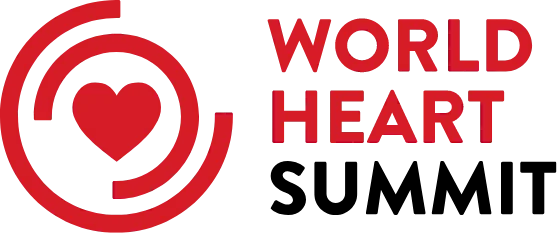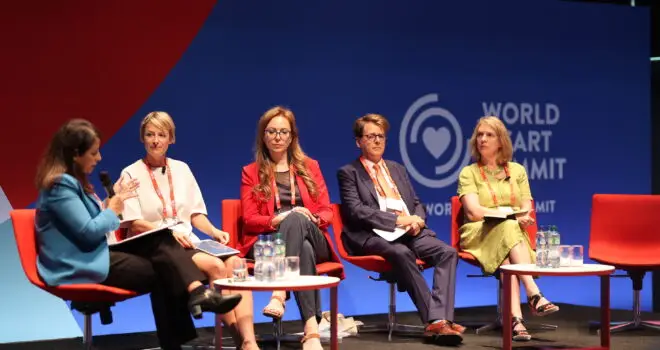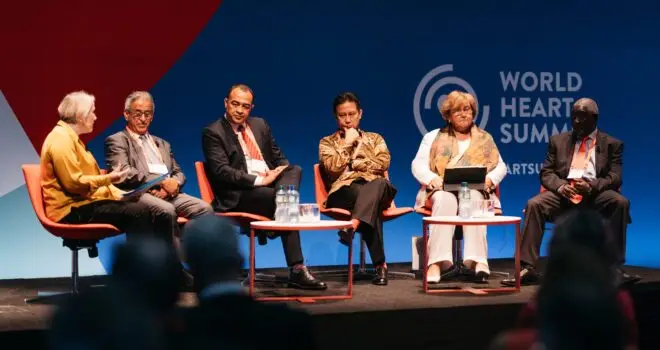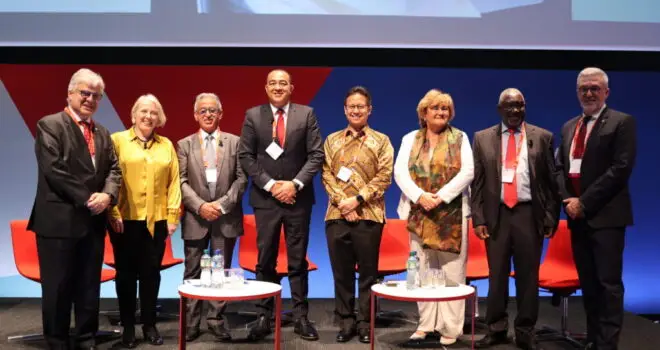World Heart Summit 2022: Cardiovascular health must be for everyone
13 May, 2022
Ahead of the 7th World Heart Summit, Professor Fausto Pinto, President of the World Heart Federation (WHF) shares his hopes and insights. He is also the Dean of the Faculty of Medicine at the University of Lisbon; and Professor of Cardiology and Head of the Cardiovascular Department, Santa Maria University Hospital/CHULN, Portugal.
More than 450 participants and at least 29 speakers from the medical, research, and policy sectors, as well as the health industry, are meeting this month to address better cardiovascular health for all. The 7th World Heart Summit aims to map needed changes and trends; take stock of new treatments, technologies and approaches; and challenge policymakers to make cardiovascular health a priority.
This World Heart Summit is special as it is our first chance to meet with opinion leaders and the wider community since the pandemic and to reinforce our message that cardiovascular health must be for everyone. Innovating and networking, the diverse gathering of disciplines at the Summit reflects our commitment to greater cardiovascular health across sectors, regions, and socioeconomic backgrounds.
While awareness is growing, cardiovascular disease still causes more than 18 million deaths each year. And yet, heart failure and heart valve disease were a death sentence years ago; today, we see increasing success in treatment methods, medication, and ways to manage cardiovascular disease. In fact, 80 per cent of cardiovascular disease is potentially preventable but unfortunately, not everyone is able to access the right care or in many cases, any form of care.
Great things can happen when science and policy ‘talk’ to each other. Science and policy together are a main pathway for wider cardiovascular care, allowing evidence and data to form the basis of the right decisions. This entails reaching those who allocate resources and make choices that determine the health and well-being of their populations. Such decisions are often misperceived as costly when, in fact, they yield return on investment, saving on treatment and management of avoidable health complications later on. For example, the World Heart Observatory will be one significant source of curated data and knowledge to guide policy-setting for cardiovascular health.
In my native Portugal, we have a saying that translates roughly to ‘hope should be the last thing to die.’ The work of the medical community is never-ending; cardiologists can literally bring people back to life. We must continue to focus on greater awareness and emphasise the steps of prevention: smoking cessation, better eating habits, staying active and having access to proper health care are just a few.
The World Heart Summit attracts diverse participation and raises a platform for sharing potential solutions and latest evidence, prevention strategies, new findings, and promising partnerships. We will discuss important technical aspects of care and research in panel sessions, yes, but we will also create an informal space where new ideas can take off and energy is refuelled. We will continue to work closely with our many partners and through our valuable collaboration with WHO and all who strive to ensure healthy lives and well-being for all.
What is the ideal cardiovascular future? It is a world in which everyone accesses care and in which decision-making is informed by science for the benefit of all communities, thus reducing the burden of cardiovascular disease. Cardiovascular health for all– it is the direction we urge everyone to move towards, at the Summit and beyond; it is a never-ending journey on which we hope to keep making strides and quicken the pace.



